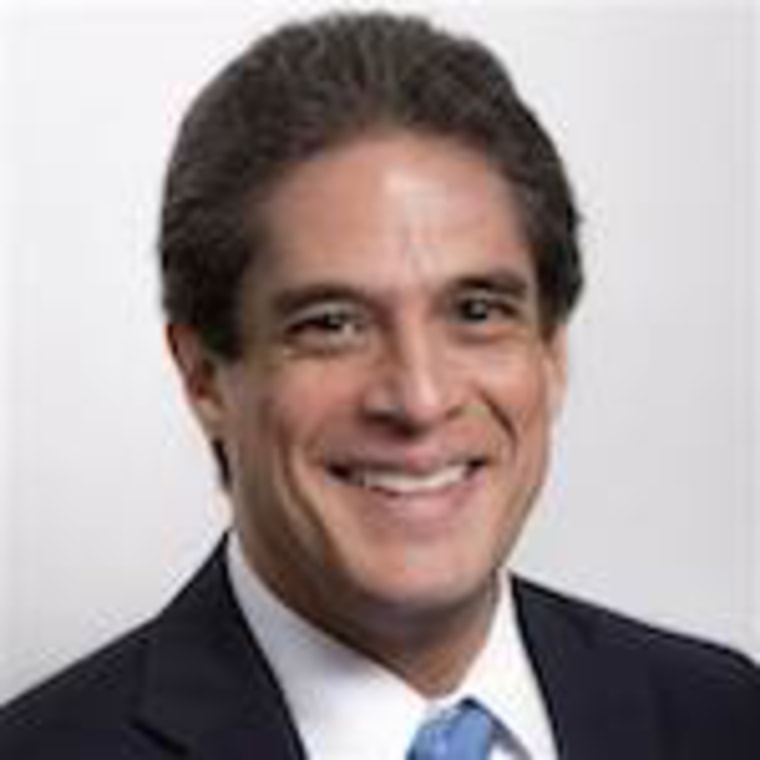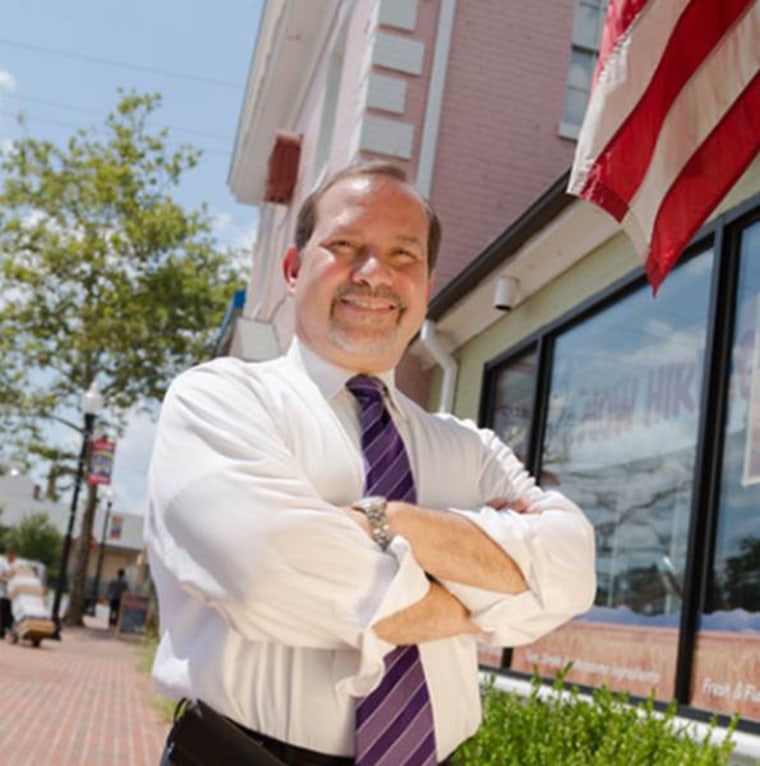Who scored points, who had some disappointing moments, and did the Republican candidates make a good case to prospective Latino voters on their economic plans? We asked a group of Latino/as to give us their opinions of last night's GOP debate.
After Another Strong Performance, Rubio Builds Momentum

Last night's debate gave Latino voters, and voters in general, some substance on which to distinguish the Republican candidates from Democrats as well as from each other. First up was the unanimous lack of support for raising the minimum wage. Given that over two-thirds of Americans support a raise in minimum wage, and over 80 percent of Latinos, this was perhaps not the best distinction for candidates to start with. Here, Carson gave one of the most direct and effective justifications, explaining the potential impact that such a move might have on the number of jobs. In one of the only references to race made during the debate, he described the impact of joblessness on the black community, and the need to prioritize the creation of jobs for people to “ascend the ladder of opportunity.”
Distinctions were made between the candidates on issues of taxation, spending, and foreign policy. While the call to cut taxes is generally well received, tonight’s debate raised some concerns over how this might be done in a responsible way that facilitates growth but avoids aggravating debt. Kasich argued that while the Democrats are clearly not responsible with spending, the Republicans need to be responsible on the tax cutting side. Kasich, like Bush, continues to be the voice of policy pragmatism, building on solid executive leadership. The similarity carries over into their moderate stances on immigration reform. While these characteristics may fare better in the general election, both are still struggling to inspire the Republican base.
Fiorina repeated a forceful and articulate presence. She continued populist appeals that critique the “crony capitalism” of both parties and she is clearly the biggest hawk of the bunch, but she was questioned, I’d argue rightly so, on the credibility of her policy proposals. Rand Paul had a stronger presence in this debate than he has thus far. While his libertarian leanings provide more appeal to conservative independents, particularly the younger millennials, he also continues to struggle with drawing in the base. Although his message of true fiscal conservativism might be one that resonates. Cruz challenged the narrative that the Republicans are the party of the rich by blaming income inequality on Washington’s culture of regulation. Trump continued his rants against “illegal Immigrants” praising the recent court ruling challenging the Obama administration executive actions and once again using discourses on drugs, something that is not likely to bolster his claim that Latinos love him.
Rubio had a strong performance last night, something that’s likely to contribute to the momentum he’s been building since the last debate. He continues his narrative on the “American Dream”, but he added his form of “compassionate conservatism” by discussing a child tax credit designed to help families to deal with paying childcare that costs more than college. While it drew criticism from Rand Paul, it is an important dilemma many working class families face and it was an innovative way to tie the Republican “family values” rhetoric into a pertinent socioeconomic issue. His appeals to make higher education more accessible, is one that should resonate with Latino voters. If Rubio doesn’t make it to the big stage this time, which he very well might, his consistency and sincerity may secure him a VP spot.
Celeste Montoya is an Associate Professor in the Department of Women & Gender Studies at the University of Colorado Boulder.
On Immigration, Gloves Came Off

Like a long-running game of musical chairs, the GOP debates continued last night. Although the number of candidates on the main stage was smaller, the stakes were higher, with all of the presidential hopefuls scrambling to turn in a strong performance and avoid being sent to the dreaded “Kids’ Table.”
Last night we were reminded that this group of wealthy, successful individuals is against raising the minimum wage. Billionaire developer Donald Trump maintained that “wages are too high,” while Dr. Ben Carson stated that raising the minimum wage might keep African-American young people from finding jobs. Florida Senator Marco Rubio said that, "In the 21st century, (raising the minimum wage) it's a disaster. If you raise the minimum wage you're going to make people more expensive than a machine."
Meanwhile, research from Latino Decisions showed that 78 percent of Hispanics favor raising the federal minimum wage to $10.10 an hour. And despite the candidates’ assertions to the contrary, it is a myth that a higher minimum wage hurts jobs and employment. So here is an issue where the leading GOP candidates are both out of touch with a majority of Latinos as well as economic reality.
Immigration figured prominently in this debate, with Trump repeating his inhumane and impractical call for mass deportations of the undocumented. To their credit, both former Ohio Governor John Kasich and former Florida Governor Jeb Bush called Trump out for his position. In fact, Bush had his best moment of the night by reminding Trump that large-scale removals were bad policy and bad politics. "Even having this conversation sends a powerful signal,” he said. “They're doing high-fives in the Clinton campaign right now when they hear this. That's the problem with this.” Bush is right – and the longer Trump remains at the top of the GOP field, the worse it will be for the Republican Party in the general election.
In making his case that the U.S. could and should deport all of our undocumented population, Trump invoked a program developed by President Eisenhower. What he neglected to say was that that this program was known as “Operation Wetback.” Not only was the name of this program offensive, it led to massive civil rights abuses and even deaths among deportees. That Trump has brought such radical notions in the mainstream of politics in 2015 is still astonishing.
The winners and losers last night were not as clear as in previous debates. Nearly everyone had at least one standout moment, such as Kentucky Senator Rand Paul challenging Rubio over defense spending. Conversely, Jeb Bush did not achieve the breakout performance that his limp campaign desperately needed.
Once again, this Republican debate also was notable for what was not mentioned. For all the condemnation of President Obama’s economic policies, the moderators and candidates avoided the fact that the U.S. in the midst of a job growth streak, with 8.7 million jobs being added since Obama took office. No one seemed to want to speak about campaign finance reform. No one asked Ted Cruz about attending a forum over the weekend in Iowa hosted by a homophobic preacher who believes that gays should be killed (Mike Huckabee and Bobby Jindal were also in attendance).
Finally, both Rubio and Cruz have compelling stories about how their families came to the U.S. and achieved their American dreams. We all know this, because Rubio and Cruz mention their family history at every opportunity. At the next debate, it would certainly be instructive to have the moderators ask the senators why other (non-Cuban) immigrants are not worthy of the special treatment that their own families received – and whether Cuban immigrants should continue to receive such benefits as we normalize relations with Cuba.
Raul Reyes is an NBC Latino contributor, attorney, journalist and TV commentator.
GOP Candidates Provide Optimistic View of the Future

It was refreshing to see a debate focused primarily on economic issues. While there were a variety of approaches, the general consensus was around a few fundamental notions. First, the truism that we cannot spend, cut or tax our way to prosperity; we have to vigorously promote policies that will stimulate growth in the private sector free market. Second, the role that government can play in facilitating growth is in instituting business-friendly reforms. This includes lowering business taxes so they are more competitive with other developed countries, ensuring our regulatory regimes are rational and limited to only those that are absolutely needed, and doing everything we can to prepare, train and educate our workforce to meet the dynamic demands of employers today and tomorrow.
These approaches are not only good for business, but also good for citizens; particularly those that are struggling in our relatively flat-lined economy of the last several years. Too many of our fellow Americans are either unemployed or underemployed. The best way to help them is to ensure we have a growing and thriving economy, make sure they are prepared to fill those jobs and provide an opportunity driven environment for everyone. The candidates that appeared most prepared to discuss these concepts with a balance of both specificity and realism included Governor Kasich, Senator Rubio, Ms. Fiorina and Governor Bush (in no particular order). However, they seemed to have trouble with banking related questions and clearly needed to elaborate with more depth.
Senators Cruz and Paul, Dr. Carson and Mr. Trump all brought up bold ideas, especially around significant tax cuts, but they also relied heavily on assumptions of massive dynamic growth projections as well as steep cuts in government agencies and programs. While many on the conservative side would love to see huge decreases in taxes and spending, without filibuster-proof majorities in the Senate, it would be challenging to execute these approaches, and even if they did, it would only put a dent in our debt and deficit problems. What was lacking in a substantive way, was a pragmatic discussion about the 500 pound gorilla in the room; entitlement spending, which represents nearly half of all government spending in 2015.
As for the other topics that generated heated exchanges, immigration reform, national defense and trade were all interesting to watch. Several offered a compassionate stance to immigration reform (e.g., Kasich, Bush, etc.), while others emphasized a harder rule-of-law imperative (like Trump and Cruz). On foreign policy, the majority took a hawkish view of what is needed to reinvigorate the armed forces and reestablish America’s dominant role on the world state, but Senator Paul repeated his long held position that we need not be the globe’s police force.
Overall, most candidates provided a hopeful, optimistic view of the future. A view in which our best days are ahead of us and where America regains, reinforces and fortifies is mantle as the shining city on a hill.
Danny Vargas is a small-business owner, former corporate executive and a US Air Force veteran. He is a former Republican candidate for the Virginia House of Delegates, former Chairman of the Virginia Board of Workforce Development and former Chairman of the Republican National Hispanic Assembly.
